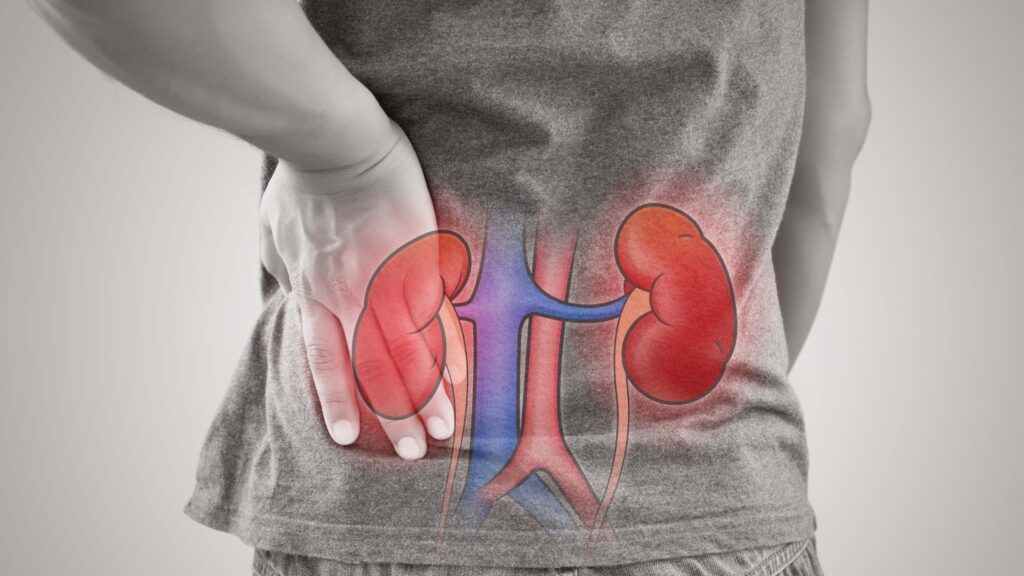What is acute kidney failure
In order to diagnose, your nephrologist will run several tests. This condition is very serious and can lead to heart disease, kidney failure, and even death. A few tests will help your nephrologist in kolkata decide what is wrong. A blood test will measure creatinine, urea nitrogen, potassium, and other blood chemicals. It will also look at how well your organs are functioning. If you suspect that you have this condition, your healthcare provider will prescribe some of these tests to help you determine what is going on with your kidneys. Diagnosing acute kidney injury is essential to prevent complications. There are several tests that can help determine the cause. Imaging tests and blood tests can help doctors determine the exact cause of your condition. A kidney biopsy is a common procedure that involves the removal of a small piece of the kidney and examination under a microscope. In severe cases, the condition may require a dialysis. Acute renal failure can be treated with dialysis, which can be a quick and easy procedure. When a patient’s kidneys are damaged by an unexpectedly low level of protein and nitrogen, it results in a depletion of urine. If the patient cannot produce urine, their doctor may prescribe antibiotics to reduce the amount of sodium in their body. If their kidneys are severely impaired, they may require permanent dialysis. However, if the damage is severe enough, a nephrologist can use dialysis to restore the kidney’s function.What is chronic Kidney failure?
The first step to treating kidney failure is to know what the symptoms are. Chronic kidney failure causes a person to have an excessive amount of fluid and waste products in their blood. The disease may also cause a person to have too many red blood cells and electrolyte imbalances. Dialysis treatments are available to treat chronic renal failure. The procedure removes waste and fluid from a patient’s blood. In the early stages, treatment focuses on getting the kidneys to work again and preventing fluid from building up in the body. A person who is diagnosed with kidney failure will likely stay in a hospital overnight. The amount of liquid they drink will be limited to the amount of urine they produce. In addition, they will be prescribed a special diet and medicine to help regulate their body’s fluid levels. Depending on their specific symptoms, a doctor may prescribe diuretics and antibiotics to help them get enough rest. Treatment for stage 2 and stage three kidney failure depends on the cause of the condition. The goal of treatment is to help the kidneys start functioning again and prevent the buildup of fluid in the body while they heal. A patient with kidney failure will typically stay overnight for treatment, which includes fluid restriction. A diuretic, a medication that lowers cholesterol levels, and a low-protein diet may be prescribed. Depending on the specific cause of the condition, the treatment will depend on the type of condition and how the patient wishes to treat it. There are two types of dialysis treatments available:Hemodialysis and peritoneal dialysis.
Hemodialysis is a treatment that removes waste products and excess fluid from the blood. Hemodialysis is one of three main types of renal replacement therapies. Other methods involve dialysis in a hospital or clinic setting. Peritoneal dialysis and kidney transplant are alternatives. Each method uses extracorporeal separation of blood components. The patient will be trained by a doctor to perform these procedures themselves at home. Both hemodialysis and dialysis are invasive treatments for the kidney failure patient. Dialysis works by filtering the blood and replacing lost kidney function. The process of hemodialysis is performed on an outpatient basis. There are different types of hemodialysis. The most common type of dialysis is in-center dialysis, which takes three to five hours a day. The benefits of hemodialysis are long-term health improvements and improved energy levels. Peritoneal dialysis uses a tube similar to an ink pen that passes through the patient’s vein to the heart. This is the more common of the two types. During PD, a catheter is inserted into the abdomen, which is then connected to a drain and a bag for dialysate. A cycler then fills up the belly and drains it. The blood is cleaned and returned to the body. The other type is in-center hemodialysis. It uses a special machine to remove excess fluid and waste from the blood and then purify it. Both techniques are done in a specialized clinic called a dialysis center. In-home hemodialysis is another option. This procedure is similar to the in-center type, but is performed at a hospital. Typically, the patient is accompanied by a dialysis nurse or patient care technician, who will help the patient. A patient with a failing kidney may require dialysis for many reasons. A failing kidney can lead to a life threatening illness. It is important to consult a physician about the best treatment options for your case. Patients may need multiple types of dialysis and undergo multiple procedures. Hemodialysis is not for everyone. It is important to know about the risks and benefits of different forms of dialysis. Hemodialysis is a less expensive alternative to dialysis. It only takes a few hours each day, but it’s more time-consuming and more costly. Depending on your kidney condition, you may decide to try a hemodialysis session. But you’ll have to do it once or twice a week. If you’re unable to get a dialysis session once a week, you may want to consider hemodialysis. Another advantage of hemodialysis is that it can be performed at home. There are many advantages to this treatment. The first benefit is the ability to restore kidney function, which is vital to maintaining your health. A patient who can perform home hemodialysis may have a shorter duration of dialysis. A hemodialysis session can also be life-saving for people with impaired kidney function.Know Difference, Symptoms, Cause, Treatment and Prevention of Acute Kidney Failure and Chronic Kidney Failure. And What type of dialysis treatments available in Acute Kidney Failure and Chronic Kidney Failure.

